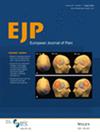Central sensitization inventory is associated with psychological functioning but not with psychophysical assessment of pain amplification
Abstract
Background
The central sensitization inventory (CSI) is a questionnaire that has been widely used as a tool for assessing symptoms associated with sensitization. However, its ability to identify individuals with this phenomenon has recently been questioned. The aim of this study was to assess the correlation of CSI with psychosocial and psychophysical factors in patients with painful TMD diagnosed according to diagnostic criteria for temporomandibular disorders (DC/TMD) and asymptomatic controls, as well as to determine the influence of these variables on the CSI scores variations.
Methods
This cross-sectional study with 77 patients diagnosed with painful TMD according to DC/TMD and 101 asymptomatic controls realized correlations between CSI, WUR, PPT, CPM and psychosocial questionnaires (HADS, PSQI, PCS and PSS). In cases where significant correlations existed, the potential influence of these variables on CSI variation was explored through linear regression analysis.
Results
It has been found that the CSI correlates with psychosocial variables (anxiety, depression, catastrophizing, sleep and stress) (p < 0.0006) regardless of the presence of TMD, and that 68.9% of the variation in CSI scores can be influenced by all these variables (except stress). On the contrary, the CSI does not correlate with psychophysical parameters indicative of pain amplification (wind-up ratio and conditioned pain modulation) (p > 0.320).
Conclusion
CSI is more associated with psychosocial factors than with more robust indicators of probable central sensitization (CS), thus limiting its utility in detecting this phenomenon both in TMD patients and healthy individuals.
Significance Statement
The research highlights a noteworthy relationship between the central sensitization inventory and psychological factors, emphasizing their substantial influence on inventory values. This correlation offers crucial insights into mental health markers within the questionnaire. Additionally, the lack of connection with pain amplification implies a necessary re-evaluation of the inventory's diagnostic suitability, especially in cases of painful temporomandibular disorders. Thus, caution is urged in its application for identifying CS in these individuals.

 求助内容:
求助内容: 应助结果提醒方式:
应助结果提醒方式:


